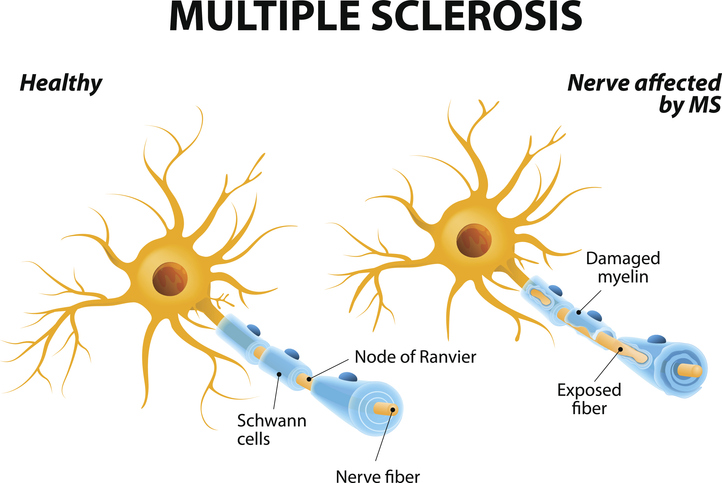Signs of a rogue immune system may be present more than a decade before the debilitating physical symptoms of multiple sclerosis (MS) reveal themselves.
A new study found poor mental health may be one of the earliest hints of this disease, which impacts about 2.8 million people globally.
University of British Columbia epidemiologist Marta Ruiz-Algueró and colleagues investigated the medical histories of 2,038 patients with MS in Canada and compared them to 10,182 patients without.
Related: A Balance of Gut Bacteria Could Play a Crucial Role in How MS Develops
They found patients who went on to develop MS had presented to their physicians with symptoms such as fatigue, headaches, dizziness, anxiety, and depression more often than the general population.
What's more, these clues appeared as early as 15 years before more established symptoms were first detected. The researchers also identified a spike in visits to neurologists and ophthalmologists around 8 to 9 years before their diagnosis. This was then followed by a surge of visits for physical symptoms in the lead-up to diagnosis.
"We're only now starting to understand what these early warning signs are, with mental health-related issues appearing to be among the earliest indicators," says Ruiz-Algueró.
"These patterns suggest that MS has a long and complex prodromal phase – where something is happening beneath the surface but hasn't yet declared itself as MS."

Symptoms of poor mental health are common throughout the population, the researchers caution, and most people who experience them will not go on to develop MS. Still, if we can better understand how such signs relate to MS, it may become possible to identify risk factors and earlier interventions.
"MS can be difficult to recognize as many of the earliest signs – like fatigue, headache, pain, and mental health concerns – can be quite general and easily mistaken for other conditions," explains University of British Columbia epidemiologist Helen Tremlett.
The immune systems of people with MS mistakenly attack their nerves' fatty protective coating, called the myelin sheath. This can eventually lead to pain, loss of sensation, and loss of motor function in different parts of the body, as the connection between the body and the brain becomes compromised. Fatigue, vision disturbances, and cognitive dysfunction are also common symptoms.

While viral and bacterial infections have been implicated in triggering MS, and certain genes appear to make some people more susceptible, we don't yet fully understand what causes the immune system to go rogue. Therapies can help reduce relapses, but there's no treatment to prevent the disease's progress.
Previous research has also identified a pattern of MS-specific antibodies in blood five or more years before characteristic symptoms arise.
"Our findings dramatically shift the timeline for when these early warning signs are thought to begin, potentially opening the door to opportunities for earlier detection and intervention," concludes Tremlett.
This research was published in JAMA.
